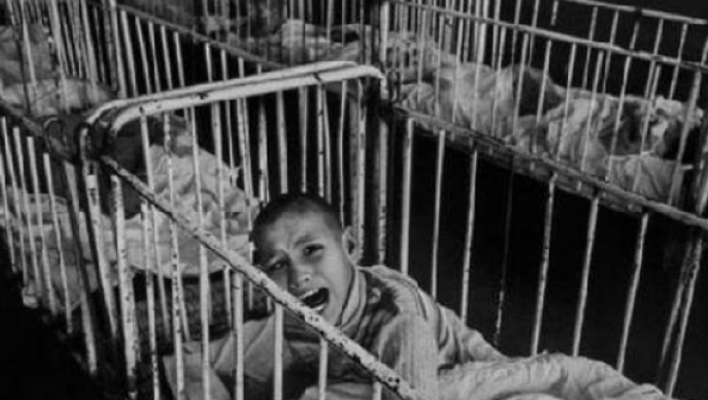The Institute for the Investigation of the Crimes of Communism and the Memory of Romanian Exile (IICCMER) invokes the exception of unconstitutionality in the file relating to the crimes committed by the communist regime regarding hundreds of children subjected to non-threatening treatments at the Siret Hospital for Chronic Neuropsychic Children.
On June 25, 2018, IICCMER submitted a complaint to the General Prosecutor’s Office regarding the commission of the crime of non-humane treatments applied during the communist regime to children in the Siret Hospital for Chronic Neuropsychiatric Children.
The complaint referred to the period January 1, 1980 – December 22, 1989, in which 340 minors died.
On March 13, 2023, a prosecutor from the General Prosecutor’s Office issued a closure order in this case, and on April 7, 2023, IICCMER filed a complaint against this document, which it considered illegal and groundless, to the superior hierarchical prosecutor.
The Institute’s complaint was rejected by the superior hierarchical prosecutor, citing the fact that IICCMER would not have a “legitimate interest” to make such a request, not being a real victim involved in the case, but a simple whistleblower.
Therefore, a judge from this court is to determine whether or not the solutions of the prosecutors were legal and thorough, an important first step being his decision regarding the exception of unconstitutionality formulated in the file.
“IICCMER believes, all the more since it is a case where many of the victims no longer have the opportunity to seek justice, that it is the duty of our institution to be a voice for them. IICCMER has a strong moral and professional commitment to truth and justice, motivated by the desire to restore the memory of victims and shed light on the injustices of the past. Through education and awareness, the institute can and must contribute to the recognition and reparation of the injustice suffered by these victims, thus strengthening its essential role in defending their rights,” IICCMER says in a press release.
“By invoking the exception of unconstitutionality, we propose to bring this case to the attention of the Constitutional Court, so as to ensure respect for the fundamental principles of the rule of law and human rights. It is imperative that we ensure that the suffering and injustices suffered by these children are not forgotten and that those responsible are brought to justice,” the institute further states.
Located in the northern part of Romania, the Siret Neuropsychiatric Children’s Hospital, suggestively called the The Orphanage of Terror according to the language of the locals, was established in 1956 by order of the Minister of Health, being among the first medical units in communist Romania dedicated to pediatric neurological conditions.
According to IICCMER, between 1956 and 2001, 8,586 children were hospitalized at Siret, of which no less than 1,500 lost their lives. For reasons of time and limited human resources, knowing that the investigation is of great proportions, both for the IICCMER and the Prosecutor’s Office Generally, the period of the 80s was chosen for the beginning.
For the reference period for which the IICCMER submitted the complaint, therefore between 01.01.1980 – 22.12.1989, 340 deaths were recorded, with a maximum in 1981 of 81 deceased children, while in 1991, under the new conditions created through the involvement of philanthropic organizations, the civil status registers record only 2 deaths.
It is worth noting that the declared number of deaths decreases considerably starting from 1983 and 1984 (12 deaths in 1984), as a result of the massive transfer of children to other units in the country. The hospital register records the transfer of over 750 children in just a few days from the end of November 1983.
“IICCMER investigations will continue to determine the route of each child transferred during that period,” the institute vows.
Most of the deaths took place in the winter months, their causes being, in an overwhelming proportion, lung diseases, followed by epilepsy, heart, kidney, liver, gastrointestinal diseases, etc. By age group, most deaths were recorded in the 1-4 years group (more than half), followed by the 5-10 years, 11-18 years and over 18 years groups. An analysis of the place of origin of the deceased children demonstrates the fact that a large part of them came from localities in Suceava county or neighboring counties, but also from more distant areas such as Bucharest, Bihor, Timiş, Dâmboviţa, Constanţa, etc.
The triggering historical context was created in 1966, when the communist regime in Romania initiated one of the most restrictive pro-natalist demographic policies. The forced growth of the population, strictly quantitative, without respect for man and without ensuring all decent living conditions, had among the consequences the increase in maternal and infant mortality, the unprecedented increase in the number of children born with serious congenital malformations, with physical and mental ailments , with various diseases inherited or acquired after birth, thousands of children becoming orphans and an impressive number being abandoned.
Minors who required protection from the state were divided into three categories: “recoverable”, “partially-recoverable” and “irrecoverable”. The differentiation was made between a category of minors that the state tried to “recover”, in whole or in part, for further integration into production, and a category of children in which the state was not willing to invest and did not even want to recognize them. The rehabilitation, even partial, of these children, who could later be integrated into work, required significant expenses, to which the state contributed only partially.
Parents had to cover part of the costs of caring for the children, regardless of their financial situation. There are not a few cases in which single-parent families, with minimal income, are forced to pay up to half of this for the maintenance of the minor in the dormitory. More difficult was the situation of minors orphaned by both parents, lacking material goods or relatives, for whom the social security budget did not provide amounts nor the legal basis by which they could cover these expenses. For the communist ideology, only the healthy man entered the discussion, the “rejects” being hidden and, at the limit, evacuated.
“Following the analysis of death certificates and death certificates, carried out by IICCMER experts and a team of forensic medicine specialists, it was found that, on the one hand, there were increased mortality rates in the case of easily preventable pathologies or to be diagnosed early and to be treated accordingly, and, on the other hand, there were causes of death that support, by their specificity, the conclusions regarding the existence of a regime characterized by non-threatening treatments applied to minors in the hospital.
As a result of the discoveries made, IICCMER submitted a criminal complaint to the General Prosecutor’s Office. According to the legal framework of operation, IICCMER is empowered to carry out scientific investigations regarding the crimes, abuses and violations of human rights during the entire duration of the communist regime and to notify the legal authorities,” IICCMER says.
The post Institute for Investigating Communist Crimes Challenges Closure of Siret Mental Hospital Child Victims Case appeared first on The Romania Journal.




